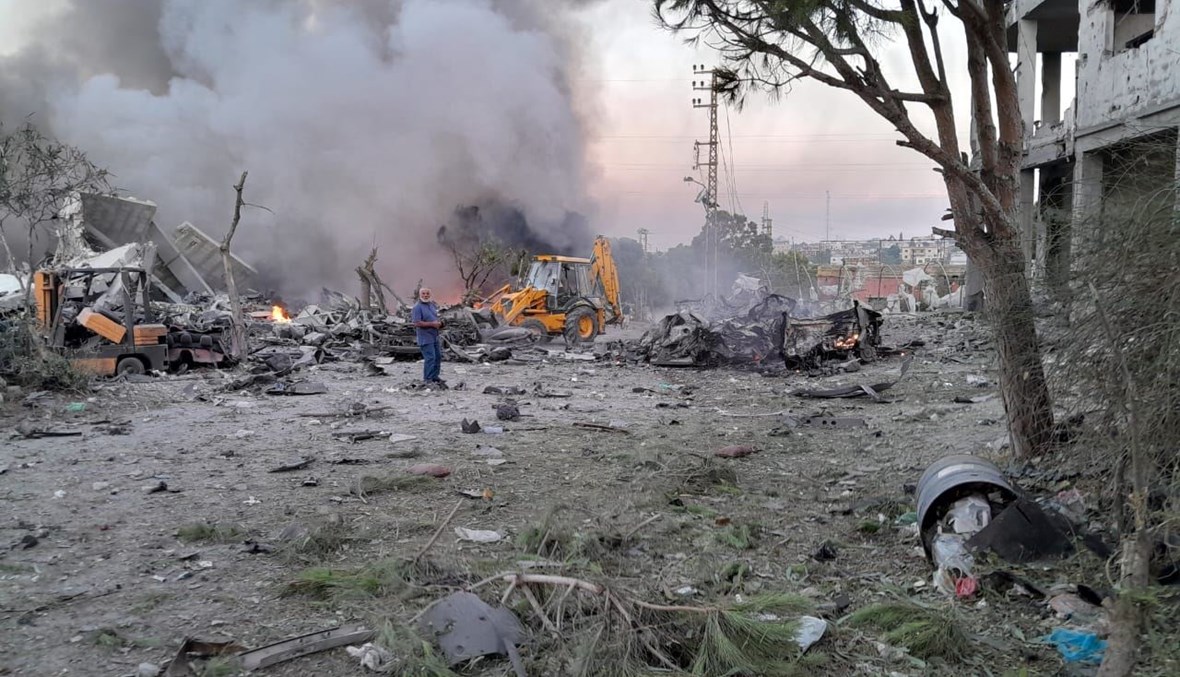One Lebanese official told Reuters that Israel’s attacks on Lebanon was the country’s highest daily death toll since the 1975-1990 civil war.
Qatar has joined global condemnation of Israel’s aggression on Lebanon on Monday, where Israeli occupation forces have killed at least 492 people and injured at least 1,500 others as it heavily bombarded numerous areas across the country.
In a statement, Qatar’s foreign ministry warned against the expansion of regional violence “and sliding into a comprehensive regional war, amid the ongoing war on the Gaza Strip”.
The ministry also highlighted “the absence of any deterrent to Israel’s actions” as the primary cause of the continued escalation, which has raised further concerns over the outbreak of a regional war.
“It also warns that this reality exacerbates crises, puts the region on the brink of the abyss, and exposes it to more tensions that will have a profound impact regionally and internationally,” the statement added, urging the international community to take urgent action to stop Israel’s crimes.
Other countries that condemned or voiced their concerns over the Israeli attacks on Lebanon included Iran, Egypt, Türkiye, Jordan, China, Saudi Arabia, and the United Arab Emirates.
The Israeli military has unleashed a wave of air strikes on densely populated civilian areas in Lebanon on Monday, claiming that these locations are Hezbollah sites. Targeted regions include southern Lebanon, the Bekaa Valley, and the Dahiyeh suburb of Beirut.
Lebanon’s healthy ministry confirmed that at least 35 children had been killed in the latest attacks, the deadliest since the beginning of the cross-border flare up between Israel and Hezbollah on October 8 last year.
One Lebanese official told Reuters it was Lebanon’s highest such daily death toll since the 1975-1990 civil war. The scenes were also reminiscent of those from the deadly 2006 Israeli war on Lebanon.
Families in the south of Lebanon were forced to flee the area as local citizens in different towns opened up their homes to shelter them. Schools and other local facilities were also turned into temporary shelters.
Qatar, a central mediator between Israel and Hamas, reiterated its “commitment to supporting all regional and international efforts aimed at achieving security and stability in the region”.
“The Ministry stresses the State of Qatar’s firm stance towards the sisterly Republic of Lebanon and its unity and territorial integrity, emphasising Qatar’s full support for all efforts that enhance Lebanon’s stability and prosperity,” it said.
The Israeli military claimed it struck around 1,600 Hezbollah targets across Lebanon including senior Hezbollah leader Ali Karaki. The Lebanese group denied Karaki was killed, and responded by firing dozens of missiles at a military base in northern Israel.
In a recorded statement, Israeli Prime Minister Benjamin Netanyahu alleged that Hezbollah is storing rockets in the homes of civilians in Lebanon, repeating similar and previous unfounded claims made about Hamas in the Gaza Strip, in yet another attempt to justify the atrocities committed.
“Israel’s war is not with you. It’s with Hezbollah. For too long, Hezbollah has been using you as human shields. It placed rockets in your living rooms and missiles in your garage,” he alleged.
Lebanese Caretaker Prime Minister, Najib Mikati, condemned Israel’s attacks on his country, describing it as a “war of extermination” and a “destructive plan”.
A United States official who briefed reporters in New York on the condition of anonymity said the Biden administration was focused on “reducing tensions” and “breaking the cycle of strike-counterstrike”.
Israel’s broadcasting authority had also revealed that Tel Aviv’s ally, Washington, granted it the green light to attack Lebanon.
The U.S. Department of Defense also announced plans to send its troops to the Middle East in the coming days in the event Americans would need to flee the region, three American officials told NBC News.
The latest major escalation in Lebanon came after a series of increased Israeli attacks on the country since last week, including cyber attacks on communication devices and deadly air strikes on southern Beirut.
The soaring regional tensions were triggered by Israel’s war on the Gaza Strip on October 7, where it has since killed at least 41,431 Palestinians, mainly women and children.
Efforts aimed at reaching a ceasefire have been stalled for months with Israel insisting on continuing the war, which is approaching its one-year mark.







